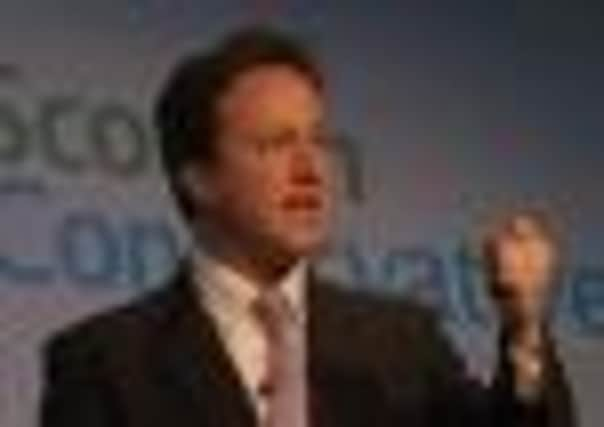Andrew McFadyen: Thatcher years make an unwelcome return


In each of the four general elections from 1979 to 1992, Labour won a large majority of seats in Scotland but was shut out of power because the Conservatives were more popular south of the Border.
The Iron Lady’s cold reception in Scotland did not convince her to compromise. Instead, she seemed to take the absolute sovereignty of parliament literally and largely ignored Scottish protests.
Advertisement
Hide AdAdvertisement
Hide AdSupporters of a Scottish Parliament picked up a phrase first used by eurosceptics to describe the lack of accountability in Brussels and began to talk about a “democratic deficit”.
The Scottish Constitutional Convention’s final report Scotland’s Parliament, Scotland’s Right shows how civic Scotland felt itself to be under attack: “Scotland approaches a new millennium facing a stark choice. It has a distinguished and distinctive structural heritage, evident in Scotland’s legal system, its educational system, its social, cultural and religious traditions. These things are the very fabric of Scottish society, yet Scotland has come to lack democratic control over them.”
As David Torrance noted in this newspaper on Wednesday, voting habits of voters across Britain in the immediate post-war years were much more closely aligned. However, this does not mean that the UK was regarded as a single political unit.
As the role of the state gradually grew throughout the 20th century, so did the responsibilities of the Scottish Office. The secretary of state controlled the machinery of government in Scotland and his ability to draw on support from the networks of civil society gave him a degree of independent authority in the Cabinet.
Tom Johnston, who served in the wartime coalition, was probably the greatest and most effective minister ever to take charge in St Andrew’s House.
When Winston Churchill appointed him to the job, Johnston demanded the right to form a council of state of all the living ex-Scottish secretaries. If they were unanimous on any one issue, he expected the Cabinet to back him. His greatest legacy was the Hydro-Electric (Scotland) Development Act, dubbed “power from the glens”, which led to the electrification of the Highlands and Islands.
Labour’s Willie Ross was the first Scottish secretary to face the challenges posed by surging support for the SNP. He turned the political threat to his advantage, urging Harold Wilson’s cabinet to bring industry and jobs to Scotland.
A Kirk elder given to quoting the bible in his speeches, Ross also ensured that the 1967 Sexual Offences (England and Wales) Act which decriminalised male homosexuality did not cover Scotland. He argued that socially conservative Presbyterian Scots would not stand for it.
Advertisement
Hide AdAdvertisement
Hide AdWhat this shows is that while in strict constitutional terms the UK may have been a unitary state, this was not how it worked in practice.
Successive Westminster governments were careful to limit their own power in the interests of harmony.
The idea of a specific “Scottish mandate” was first raised by Jim Sillars, then the Labour MP for South Ayrshire, in a parliamentary exchange with Edward Heath in 1970.
“When the prime minister goes to Scotland tomorrow, will he look up the election results for 1970 and understand that, because he issued a separate manifesto for Scotland and Scotland voted overwhelmingly for Labour, it is claptrap for him and his ministers to say that they have a mandate for cutting Scottish public expenditure and destroying the Labour government’s investment grants scheme,” he said.